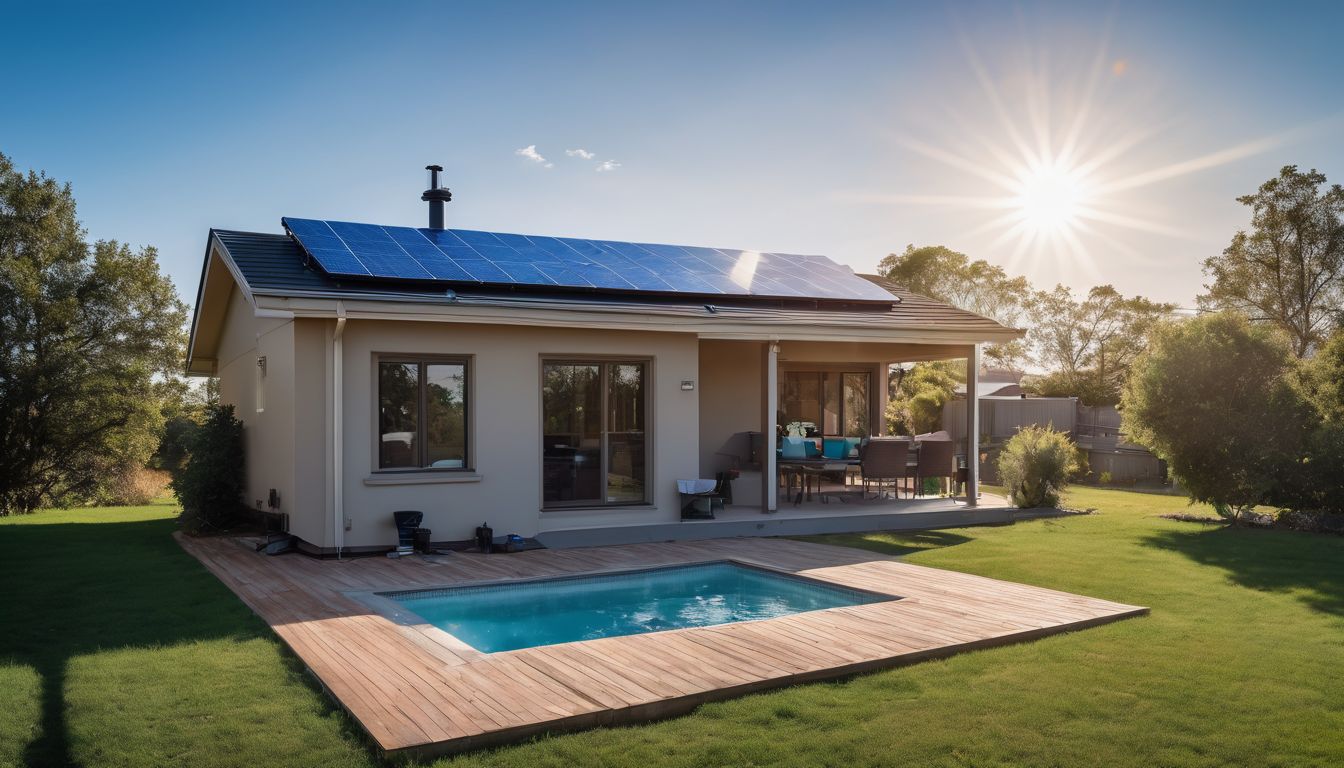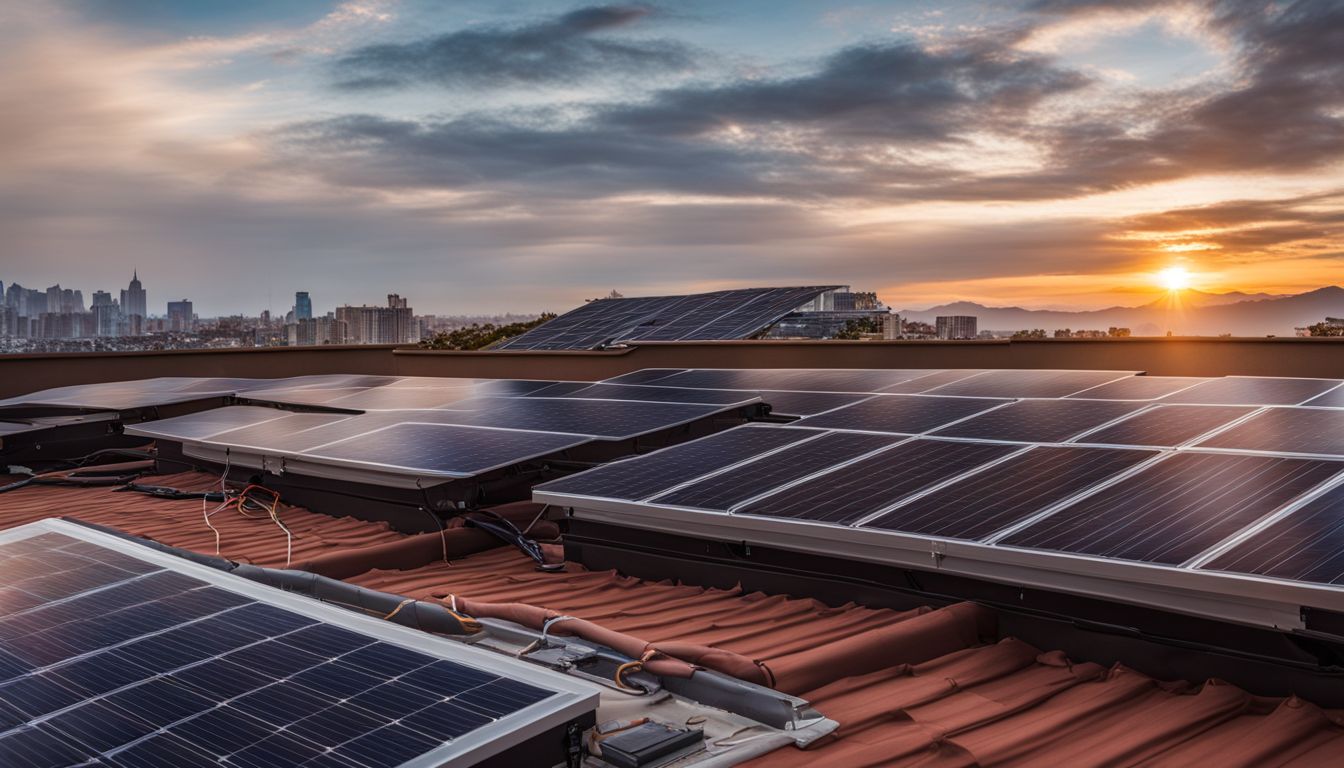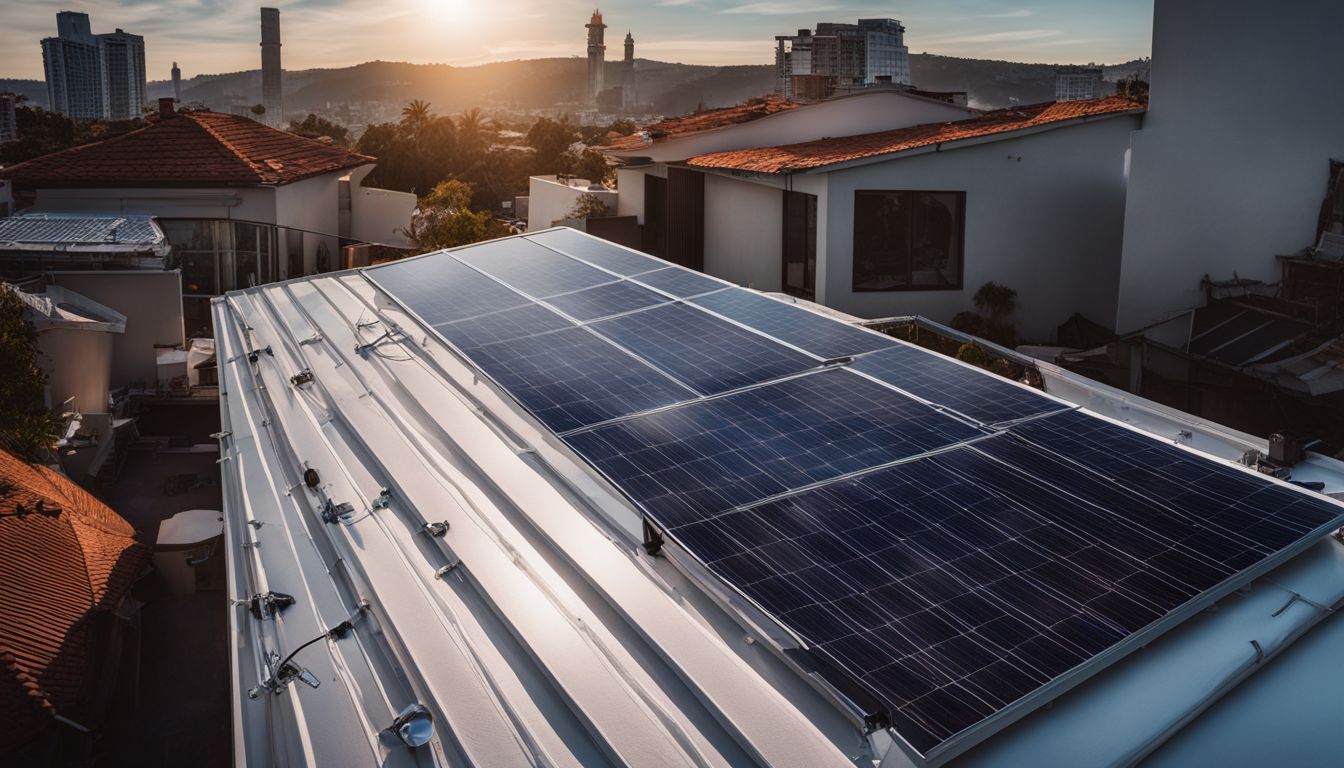Can a 5 kW solar system run a geyser?

Are you wondering if your new 5kW solar system has the juice to heat up your geyser? Most household geysers require a 3kW element, and that's good news because it means a well-managed 5kW solar setup can handle this job.
This article will illuminate how you can harness the sun's power for hot water needs, showing that going green could be both practical and beneficial for your home. Keep reading to see how solar energy might just be the perfect match for your geyser!
Key Takeaways
- A 5kW solar system can power a household geyser, which generally needs a 3kW element.
- When using solar energy to run your geyser, think about battery storage for nights and how much your whole home uses electricity to make sure there's enough power for the water heater.
- More sun during the day helps the system make more energy. If you have many sunny days, your geyser will likely work well with a 5 kW solar setup.
- Saving money on bills is possible with solar power if electricity costs are high or if you often lose power in your area. But always check local rules before making changes.
- Using clean solar energy instead of burning coal or oil is better for our planet. It means less pollution and harm to nature.
Understanding a 5kW Solar System

A 5 kW solar system is like a tiny power plant on your roof. It turns sunlight into electricity that you can use in your home. This system has solar panels, usually between 15 and 20, depending on how much power each one makes.
They work together to catch the sun's energy. The system also includes an inverter; this smart device changes the sun's power, called direct current (DC), into the kind of power that runs your TV and fridge, known as alternating current (AC).
With good sunshine, a 5kW setup can make about 22 kWh every day—enough to do lots of things! You could be making more clean energy than you need during sunny hours and even get credits from the electric company if you send extra back to them.
Plus, it’s great for our planet since it cuts down on pollution from burning stuff like coal or oil for traditional electricity.
https://www.youtube.com/watch?v=pO3PxFrsa6Q
The Possibility of a 5kW Solar System Running a Geyser

When determining whether a 5kW solar system can run a geyser, several factors need to be considered. These include the energy consumption of the geyser, the availability of sunlight, and the efficiency of the solar panels and inverter.
By evaluating these elements, it is possible to ascertain if a 5 kW solar system can effectively power a geyser.
https://www.youtube.com/watch?v=DvGDgBfRhD4
Factors to Consider
Before deciding if a 5 kW solar system can run a geyser, it's important to look at several things. This will help you know if your solar system can meet the needs of your water heater.
- The size of the inverter: Your solar inverter changes the power from the sun into electricity that your home can use. A 5 kW solar inverter should match or be more powerful than the geyser’s needs.
- Battery storage capacity: If you plan to heat water when there's no sun, like at night, you need batteries to store energy. Make sure they are big enough to hold the energy needed for heating.
- The energy needs of the geyser: Look at how much electricity your water heater uses. Geysers with high power needs may require more from a 5 kW system than it can provide.
- Other household energy use: Think about what else uses electricity in your home. Everything that needs power cuts into what's available for your geyser.
- Sunlight hours: More sunlight means more solar power. Places with lots of sunny days will get more energy from their systems.
- Type of water heater: Some geysers need less power and work better with solar systems. For example, a solar geyser is made to be efficient with solar power.
- Potential savings: Using a 5kW solar system might lower your bills. Always check how much you could save over time.
- Environmental benefits: Solar power is clean and does not harm nature as much as other ways to make electricity. It's good to think about how using a 5 kW system helps our planet.
Practical Implications
Running a geyser on a 5kW solar PV system has its challenges. You need to think about how much power your geyser uses and when it uses the most energy. Most geysers work harder in the morning and evening.
This is when there's less sun for your solar system to make electricity.
If you decide to use your solar power for the geyser, be sure it's very efficient. A smart thermostat can help by only heating water when needed. Using energy-saving settings also makes a big difference.
Some people keep their old geysers but want solar systems too. They must understand that connecting a traditional geyser directly to their PV setup isn't straightforward; often, experts advise against it due to safety risks.
You could save money on electricity with this setup over time, especially if power costs are high where you live or if there are frequent power cuts that make the electric supply unreliable.
However, always check what your local regulations say before making changes like these because they can affect how safe and legal your setup is.
Comparing Geyser Power Needs with a 5kW Solar System's Output
Deciphering the energy requirements of a geyser vis-à-vis the output of a 5 kW solar system is crucial for anyone looking to harness solar power for their hot water needs. Let's delve into the specifics.
| Geyser Specifications | 5kW Solar System Capabilities |
|---|---|
| Typical geyser power rating: 3kW | Peak power output: 5kW |
| Average daily energy consumption: 12kWh | Average daily energy output: 20kWh (varies with location and weather) |
| Operational hours (assuming 4 hours/day): 12kWh/day | Potential daily provision: 20kWh/day |
| Instantaneous power demand: 3kW | Inverter capacity: Matches or exceeds 3kW |
Proportionally speaking, a geyser with a 3 kW element can indeed be powered by a 5 kW solar system. The inverter's capacity comfortably accommodates the geyser's peak demand. An in-depth look at daily energy output versus consumption reveals that, under ideal conditions, the solar system can generate sufficient energy to meet the geyser's needs, with surplus energy available for other uses. This balance ensures that the geyser can be operated without overtaxing the system, thus maintaining a harmonious energy ecosystem within the home.
https://www.youtube.com/watch?v=-W7ViRPgiKU
Conclusion
A 5 kW solar system can indeed power a geyser. Remember, most geysers have a 3 kW element, so this setup will work. It's common in South Africa and can lead to big savings on electricity bills.
Just keep an eye on it during load-shedding times. With the right management, your hot water needs could be sun-powered!
FAQs
1. What is a 5 kW solar system, and can it power my geyser?
A 5 kW solar system uses solar PV panels to generate electricity from sunlight. Yes, this kind of system can run a geyser, as long as the energy output matches your geyser's requirements.
2. How does using a solar system for my geyser help with electricity savings?
Solar systems convert sunlight into electric power, which means you use less energy from the grid, which leads to savings on your electricity bills.
3. Will I need a hybrid inverter for my 5 kW solar-powered geyser?
Yes, you'll likely need a hybrid inverter, as it manages both your solar array and the connection to the grid, ensuring that your geyser always gets enough power.
4. Is it more efficient to heat water with concentrated solar power or with photovoltaics for my home needs?
Both technologies have their benefits; however, photovoltaic (PV) systems might be more suitable for residential use since they directly convert sunlight into electrical energy, which can be used by an electric geyser.
5. Can wind power complement my 5kW PV systems if there's not enough sun?
Certainly! Wind is another form of sustainable energy that works well alongside PV systems when connected through smart-grid technology—so even on cloudy days you could still get hot water.
6. What other advantages come with using renewable energy sources like a 5 kW solar PV system at home?
Apart from reducing electricity costs and being environmentally friendly, such sustainable energy solutions reduce reliance on fossil fuels and decrease harmful emissions that contribute to economic activity without load-shedding worries.











